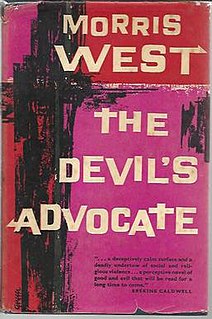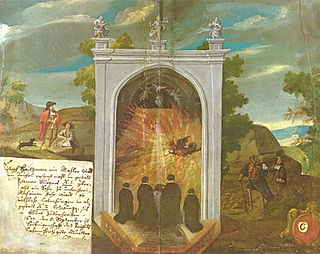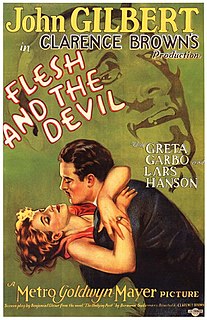
Orphans of the Sky is a science fiction novel by American writer Robert A. Heinlein, consisting of two parts: "Universe" and its sequel, "Common Sense". The two novellas were first published together in book form in 1963. "Universe" was also published separately in 1951 as a 10¢ Dell paperback. These works contain one of the earliest fictional depictions of a generation ship.

Billy Martin, known professionally as Poppy Z. Brite, is an American author. He initially achieved notoriety in the gothic horror genre of literature in the early 1990s by publishing a string of successful novels and short story collections. His later work moved into the genre of dark comedy, with many stories set in the New Orleans restaurant world. Martin's novels are typically standalone books but may feature recurring characters from previous novels and short stories. Much of his work features openly bisexual and gay characters.
A docudrama is a genre of radio and television programming, feature film, and staged theatre, which features dramatized re-enactments of actual events. On stage, it is sometimes known as documentary theatre.

Raymond Radiguet was a French novelist and poet whose two novels were noted for their explicit themes, and unique style and tone.

The submarine film is a subgenre of war film in which the majority of the plot revolves around a submarine below the ocean's surface. Films of this subgenre typically focus on a small but determined crew of submariners battling against enemy submarines or submarine-hunter ships, or against other problems ranging from disputes amongst the crew, threats of mutiny, life-threatening mechanical breakdowns, or the daily difficulties of living on a submarine.

A shrunken head is a severed and specially prepared human head that is used for trophy, ritual, or trade purposes.
A demon is a malevolent being in mythology or occultism.
James Daniel Lowder is an American author and editor, working frequently within the fantasy, dark fantasy, and horror genres, and on critical works exploring popular culture.
John Harvey is a British author of crime fiction most famous for his series of jazz-influenced Charlie Resnick novels, based in the City of Nottingham.

The Devil Goblins from Neptune is a BBC Books original novel written by Martin Day and Keith Topping and based on the long-running British science fiction television series Doctor Who. It was the first novel published in the Past Doctor Adventures range and features the Third Doctor, UNIT, The Brigadier, and Liz.

The Quiet Earth is a 1985 New Zealand science fiction post-apocalyptic film directed by Geoff Murphy and starring Bruno Lawrence, Alison Routledge and Peter Smith as three survivors of a cataclysmic disaster. It is loosely based on the 1981 science fiction novel of the same name by Craig Harrison. Its other sources of inspiration have been listed as the 1954 novel I Am Legend, Dawn of the Dead, and especially the 1959 film The World, the Flesh and the Devil, of which it has been called an unofficial remake.
Alan Judd is a pseudonym used by Alan Edwin Petty. Born in 1946, he is a former soldier and diplomat who now works as a security analyst and writer in the United Kingdom. He writes both books and articles, regularly contributing to a number of publications, including The Daily Telegraph and The Spectator. His books include both fiction and non-fiction titles, with his novels often drawing on his military background.
The Last Enemy may refer to:

The Devil's Advocate is a 1959 novel by Australian author Morris West. It forms part of West's "Vatican" sequence of novels, along with The Shoes of the Fisherman (1963), The Clowns of God (1981), and Lazarus (1990).

The idea of making a deal with the devil has appeared many times in works of popular culture.
Best of Enemies may refer to:
This page is based on this
Wikipedia article Text is available under the
CC BY-SA 4.0 license; additional terms may apply.
Images, videos and audio are available under their respective licenses.











